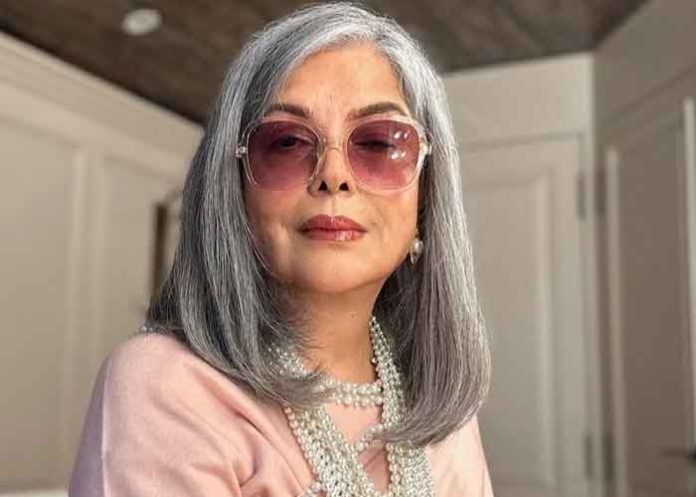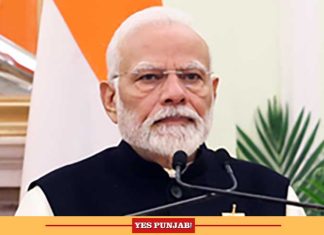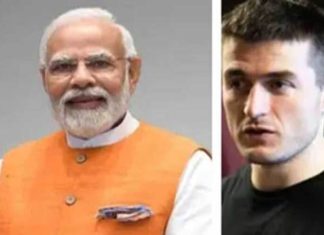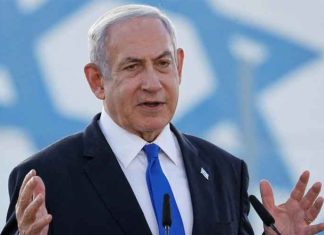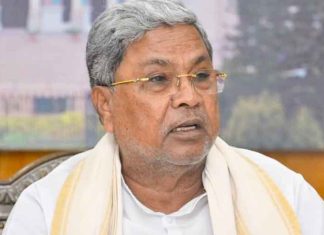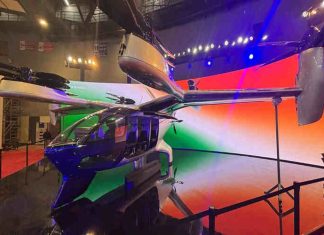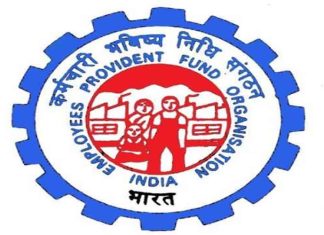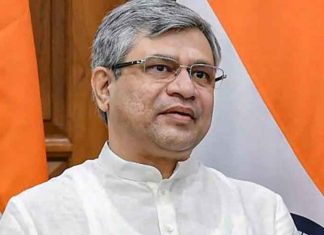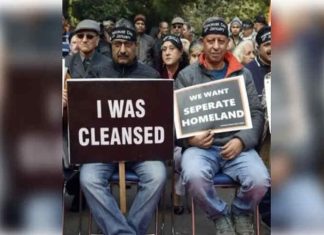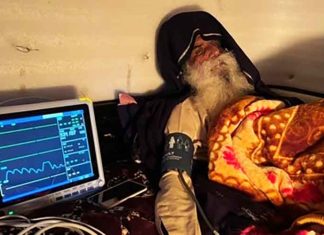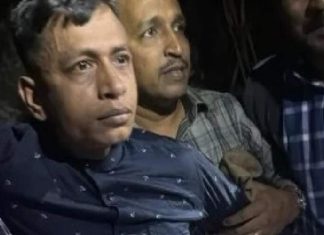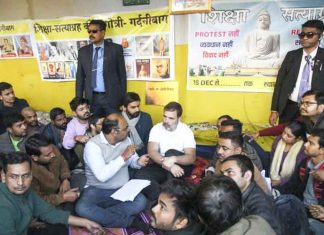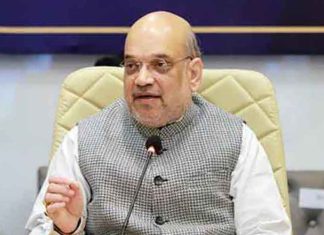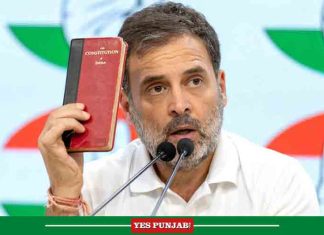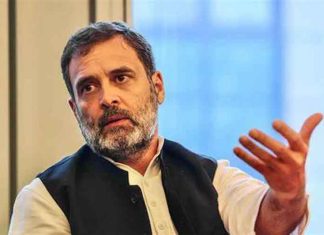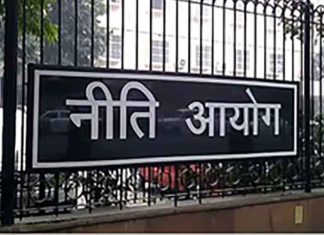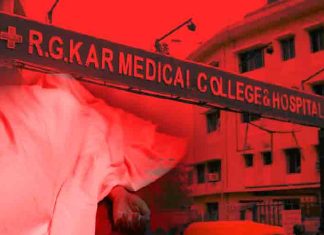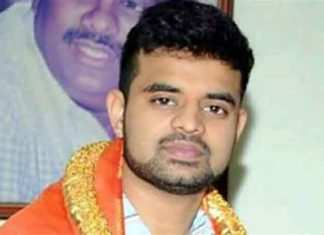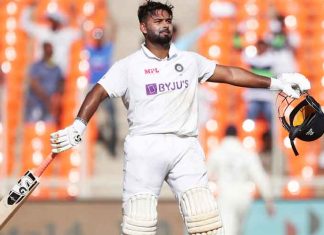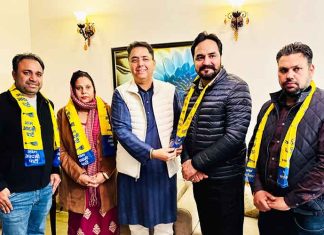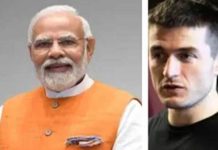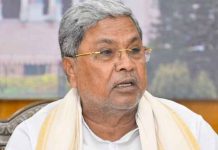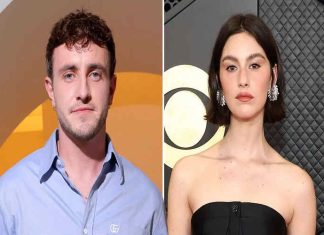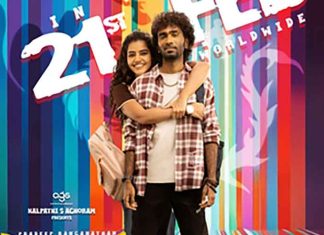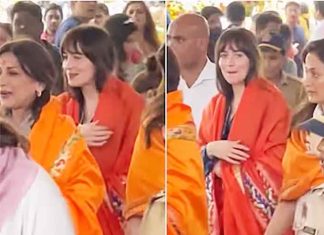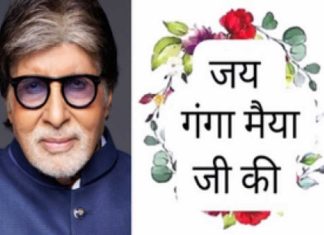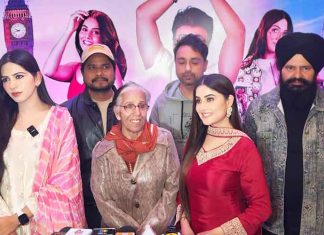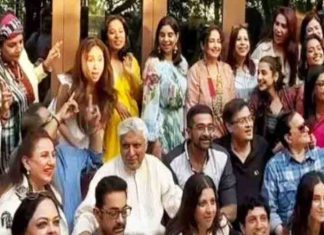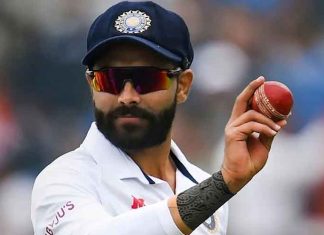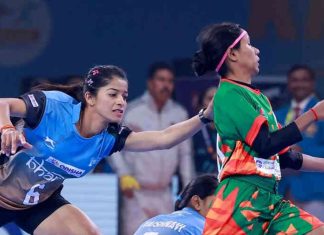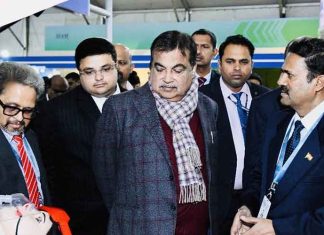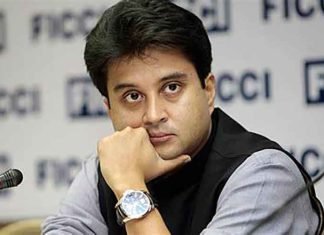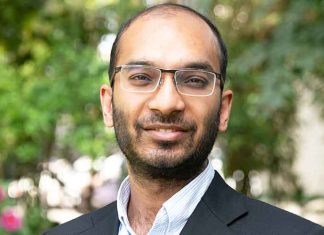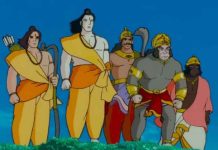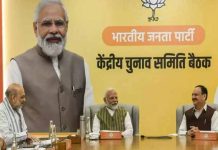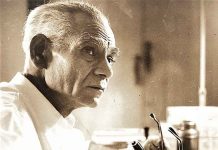New Delhi, Nov 19 2024-
She stormed into the spotlight as a tuned-out rebel belting out the subversive and psychedelic ‘Dum Maro Dum’ in ‘Hare Rama Hare Krishna’ (1971), augmented her presence as the guitar-strumming “lal kapde wali memsahib” in ‘Yaadon ki Baraat’ (1973), as the stunning Sheela, or rather, ‘Laila’, of ‘Qurbani’ (1980) and many other comely charmers. Five decades down, the stylish Zeenat Aman still rules hearts.
One of Bollywood’s most popular — and highest-paid actresses of the 1970s and midway into the 1980s, before personal problems intruded and family took primacy in the 1990s, Zeenat Aman came back with a force as the 21st century rolled in with ‘Bhopal Express’ (1999) and then, the quirky ‘Boom’ (2003).
While she continues to act in films, TV series, and even on stage, from early 2023, she was seen in a new avatar embracing social media with gusto. Her Instagram account, sharing nostalgic stories and insights from her heyday and takes on various issues, gaining her close to eight hundred thousand followers so far.
Zeenat Aman, who turns 73 on Tuesday (November 19), was a trendsetter from the onset. The first model to make it big in Bollywood, she hit success with her second movie itself — though being the hero’s long-lost ‘wayward’ sister, not the heroine, in ‘Hare Ram Hare Krishna’.
Also contributing to her rise was the fact that she had no qualms in taking on unconventional and ‘bold’ (for the time) roles of an independent-minded woman — even with a shade or two of grey, and the overt “sexualisation” of her onscreen persona.
Her cameo in ‘Hum Kisi Se Kam Nahin’ (1977) was a case in point. As qawwali ‘Hai agar dushman zamana..’ begins, Zeenat Aman, shown sitting to a bemused moustachioed Ajit, appears forlorn and vulnerable but suddenly changes track midway to confidently march up to the stage, whipping the floor away from the hero, as she introduces herself with “…Husn wale hi nahi ham/Dil bhi rakhte hain jigar bhi….”
And then, ‘Bhes Majnu ka liya maine jo Laila ho kar/Rang laya hai dupatta mera maila ho kar’ brought down the house.
But the petite yet buxom actress with her exotically sensual looks, did not always look to play a sultry temptress and was open to the wide palate of roles and characters.
She was as effective as the hapless, abused Rani Ranjit Singh in the taut whodunnit ‘Dhund’ (1973) as gold-digger Sheetal in ‘Roti Kapada Aur Makaan’ (1974), or tomboyish, revenge-seeking Roma in slick gangster film, ‘Don’ (1978) – where ‘Khaike paan Banaraswala’ also owes its popularity to her impatience — leading to the classic rebuke from the hero in chaste Awadhi — “In kaari kaari akhiyen se, tu ghur na hamko ae gori,” and her inspired jiving.
Zeenat Aman played the ambitious Rashmi Saxena, who can even go in for abortion to advance her career, in ‘Ajanabee’ (1974) with the same elan as Alibaba’s slave Fatima in Indo-Soviet co-production ‘Alibaba Aur 40 Chor’ (1980), the justice-seeking rape victim Bharti Saxena in ‘Insaaf ka Tarazu’ (1980) and the woman bandit gang leader in ‘Daku Hasina’ (1987),
Then, on one hand, there is her performance as scarred Rupa, for which she deglamourised and ditched her westernised persona, of ‘Satyam Shivam Sundaram’ (1978) and on the other, in ‘Ashanti’ (1982), playing one of the kick-ass trio in this copy of ‘Charlie’s Angels’ — Parveen Babi and Shabana Azmi were her colleagues.
Born to a mixed-religion couple in then Bombay in 1951, Zeenat Khan had a connection to the film industry right from her birth. While her parents separated when she was still young and her mother raised her, her father Amanullah Khan, a cousin of veteran actor Murad, was a scriptwriter who contributed to landmark classics like ‘Mughal-e-Azam’ and ‘Pakeezah’ under the pen-name ‘Aman’. She adopted it as her surname.
She even obtained a grant to go for her graduation to the University of Southern California in Los Angeles but returned without a degree and went into modelling. Entering the Femina Miss India pageant in 1970, she came second and then competed — and won — the Miss Asia Pacific International pageant, becoming the first Femina titleholder to win it.
It was then that she came to Bollywood’s notice, particularly the smitten Dev Anand, who gave her a break in Indo-Filipino production ‘The Evil Within’ (1970) and O. P. Ralhan, whose innovative plotted ‘Hulchul’ (1971) was her actual debut. However, it was ‘Hare Ram, Hare Krishna’ that made her name.
But, her defining moment in Bollywood was the ‘Qurbani’ song ‘Aap jaisa koi’ with beguiling lyrics like “Main insaan hoon farishta nahi/Dar hai bahak na jaun kahin/Tanha dil na sambhlega, pyaar bina ye tadpega..”, rendered in the divine voice of teenage singing sensation Nazia Hussain. (Agency)






